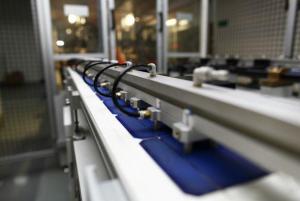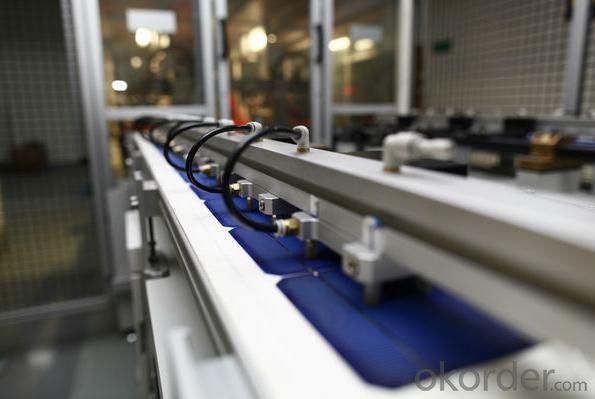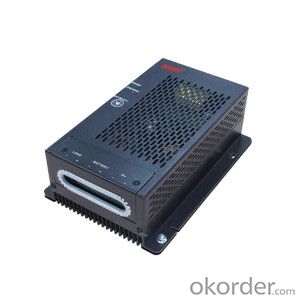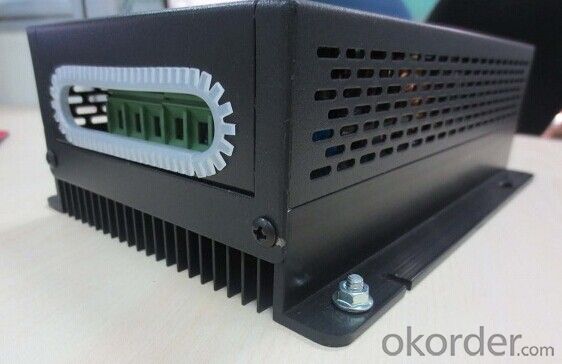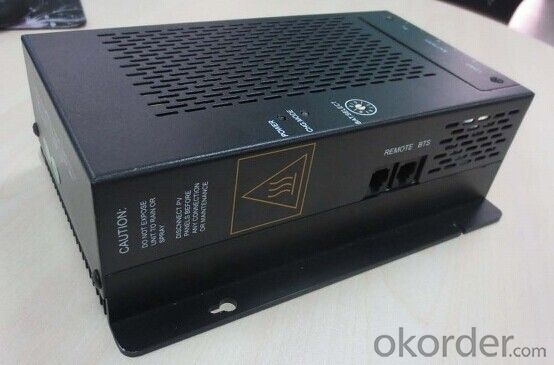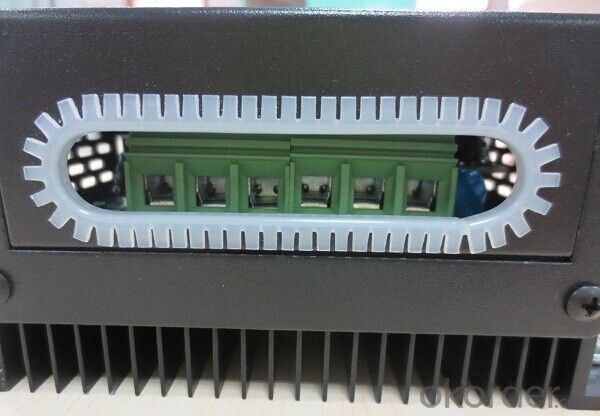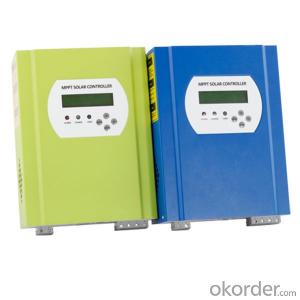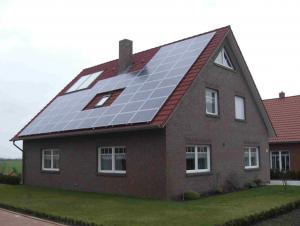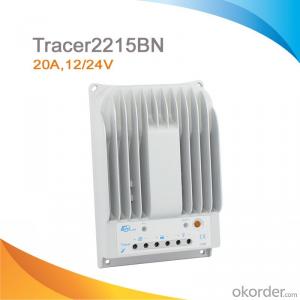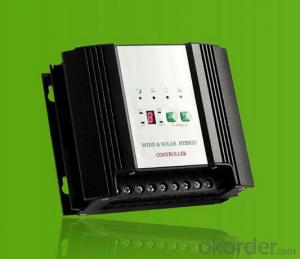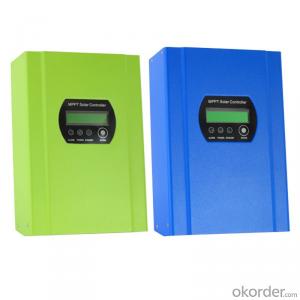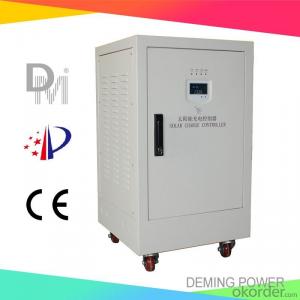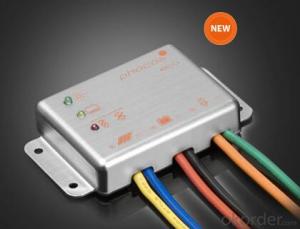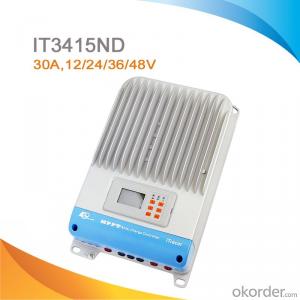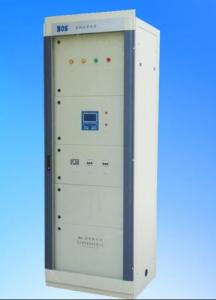Solar Controllers from Thailand Supplier - MPPT Solar Charge Controller 12V 24V 20A
- Loading Port:
- Shekou
- Payment Terms:
- TT or LC
- Min Order Qty:
- 100 pc
- Supply Capability:
- 100000 pc/month
OKorder Service Pledge
OKorder Financial Service
You Might Also Like
12V 24V 20A mppt china solar charge solar controller
PC1000 series solar controller Features:
1. MPPT Solar charge controller 20A,30A,40A
2.An optional battery temperature sensor ensures precise battery charging
3.Built-in MPPT tracker is enquipped in the power inverter to optimize the power transformation.
4.Reversed current protection for preventing equipment damage
5.Automatic battery temperature compensation for long -term reliability
6.Three stage charge control system (bulk,absorption,and float mode) with temperature compensation
7.Autamatic overload protection in both active and passive modes
8. MPPT efficiency max 90%
Detailed Description:
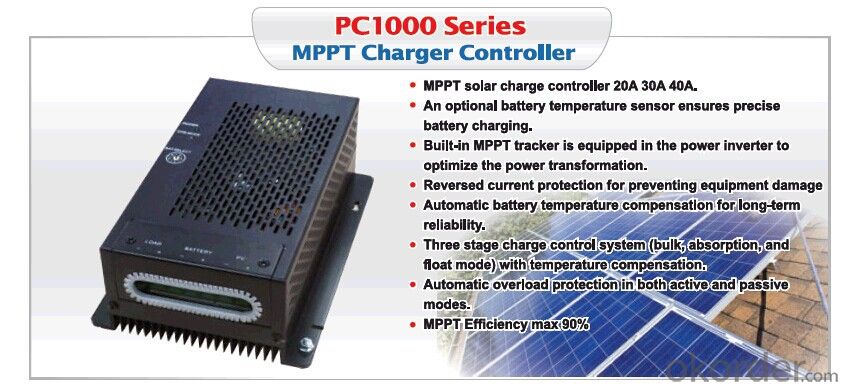
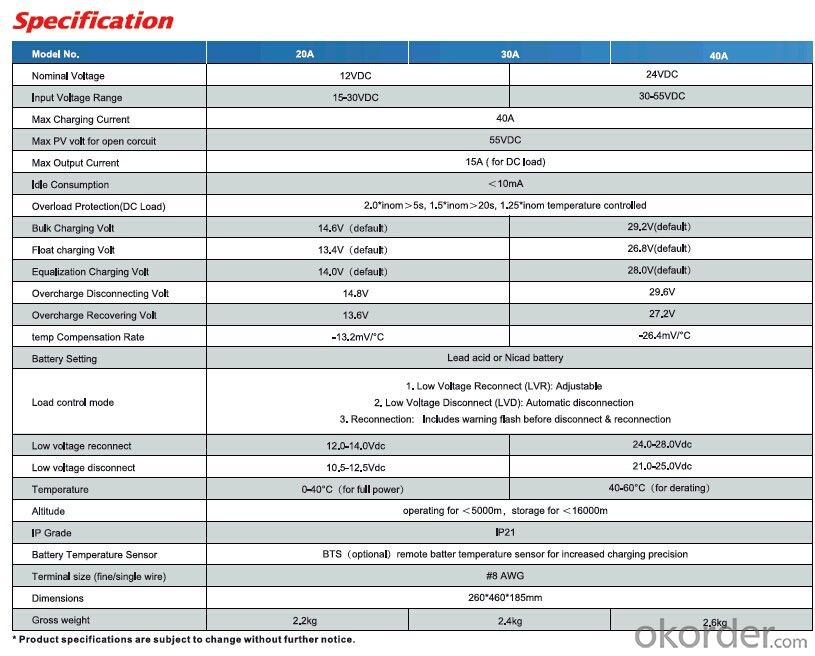
| Model | PC10-2005A | PC10-3005A | PC16-4005A | |
| Default Battery System Voltage | 12V/24V DC (adjustable) | |||
| CONTROLLER INPUT | PV Open Circuit Voltage Range | 16V~30V for 12V battery system / 32V~55V for 24V battery system | ||
| Max PV Input Power(12V) | 300W | 450W | 600W | |
| Max PV Input Power(24V) | 600W | 900W | 1200W | |
| BATTERY | Float Charging Voltage | 13.4V(default)/26.8V(default) | ||
| Bulk Charging Voltage | 14.6V(default)/28.6V(default) | |||
| Equalization Charging Voltage | 14.0V(default)/28.0V(default) | |||
| Battery Temperature Sensor | BTS(optional) remote batter temperature sensor for increased charging precision | |||
| DC OUTPUT | Output Voltage | 11.0~14.3VDC /22.0~28.6VDC | ||
| Max Charging Current | 40A | |||
| Max Output Current | 15A(for DC load) | |||
| Cutoff for Overcharge | 14.8V/29.6V | |||
| Overcharge Voltage Recovering | 13.6V/27.2V | |||
| Cutoff for Low Voltage | 10.5~12.5VDC/21.0~25.0VDC | |||
| Low Voltage Recovery | 12.0~14.0VDC/24.0~28.0VDC | |||
| GENERAL SPECIFICATION | Charge Mode | MPPT,constant current-constant voltage | ||
| Radiating Mode | Automatic cooling | |||
| Working Mode | Four stage: Absorption CC, Absorption CV, Float CC, Float CV | |||
| DISPLAY & PROTECTION | LED indication | Systematic operation, LV indication, LV protection, over charge protection, loads protection, short circuit protection | ||
| Alarm Protections | 2.0*inom>5s;1.5*inom>20s;1.25*inom temperature | |||
| Load control mode | 1.Low Voltage Reconnect(LVR):Adjustable | |||
| 2.Low Voltage Disconnect(LVD):Automatic | ||||
| 3.Reconnection:Includes waming flash before | ||||
| MECHANICAL SPECIFICATIONS | Mounting | Wall mount | ||
| W*H* D(mm) | 260*460*185mm | |||
| G.W(kg) | 2.2kg | 2.4kg | 2.6kg | |
| OTHER | Environmental Rating/IP Grade | Indoor/IP21 | ||
| Operation Temperature Range | 0~40°C(for full power)/40~60°C(for derating) | |||
| Ambient humidity | 0~90% relative humidity(non-condensing) | |||
| Altitude | ≤5000m | |||
| Terminal size (fine/single wire) | #8AWG | |||
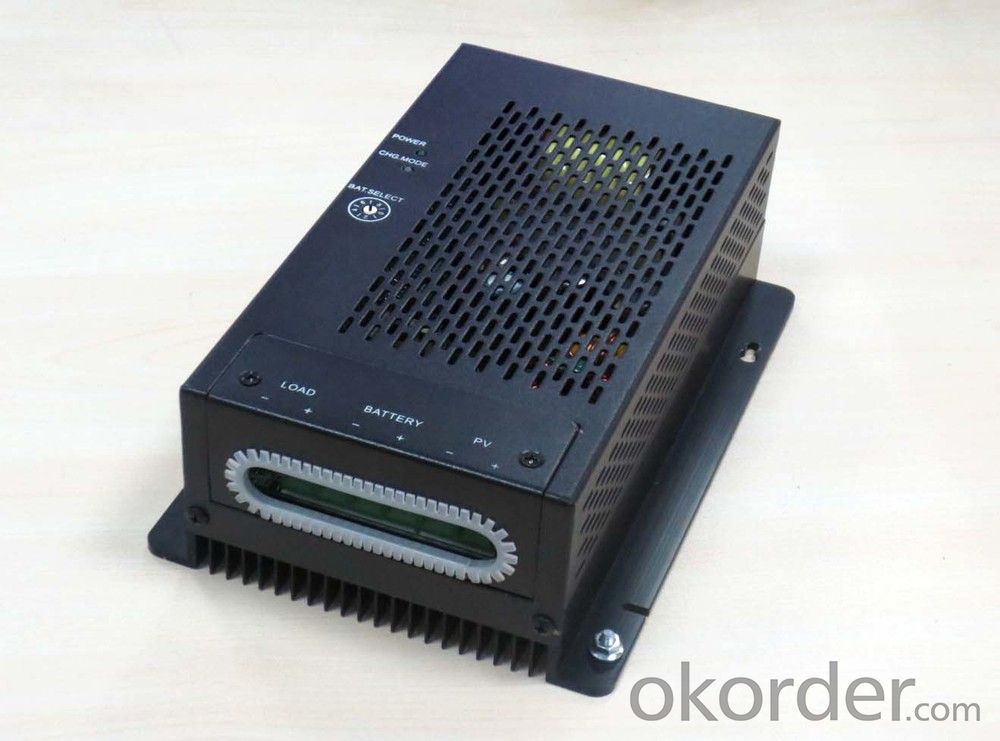
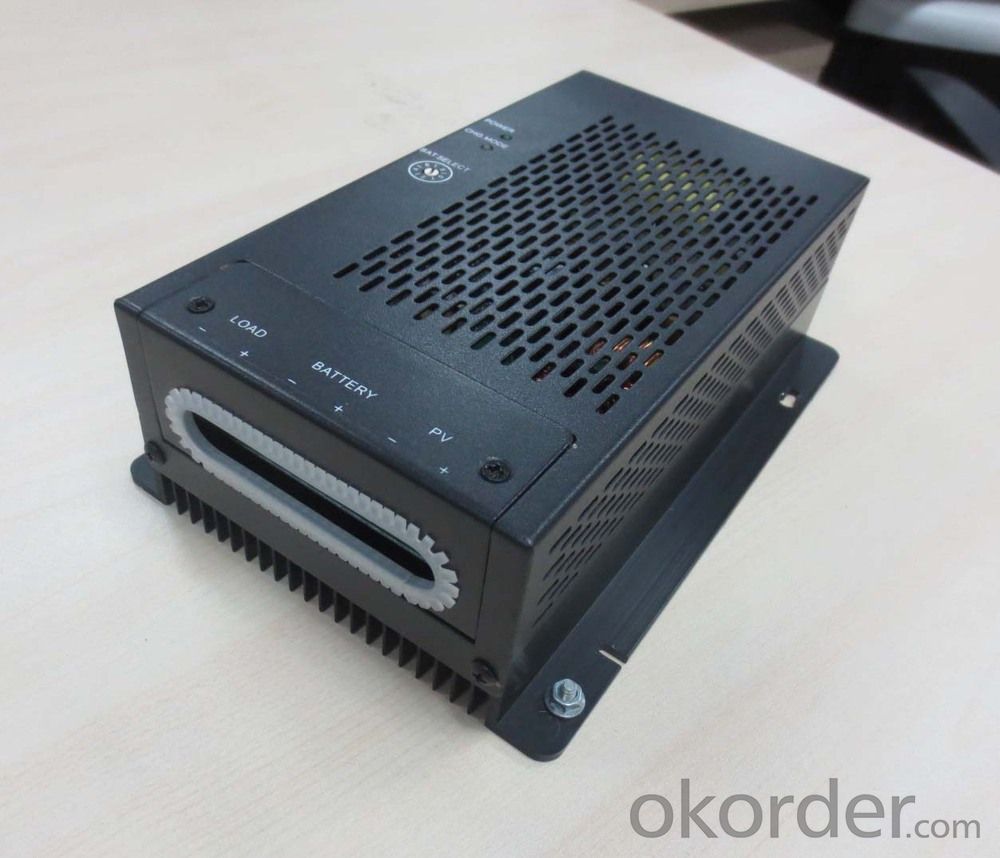
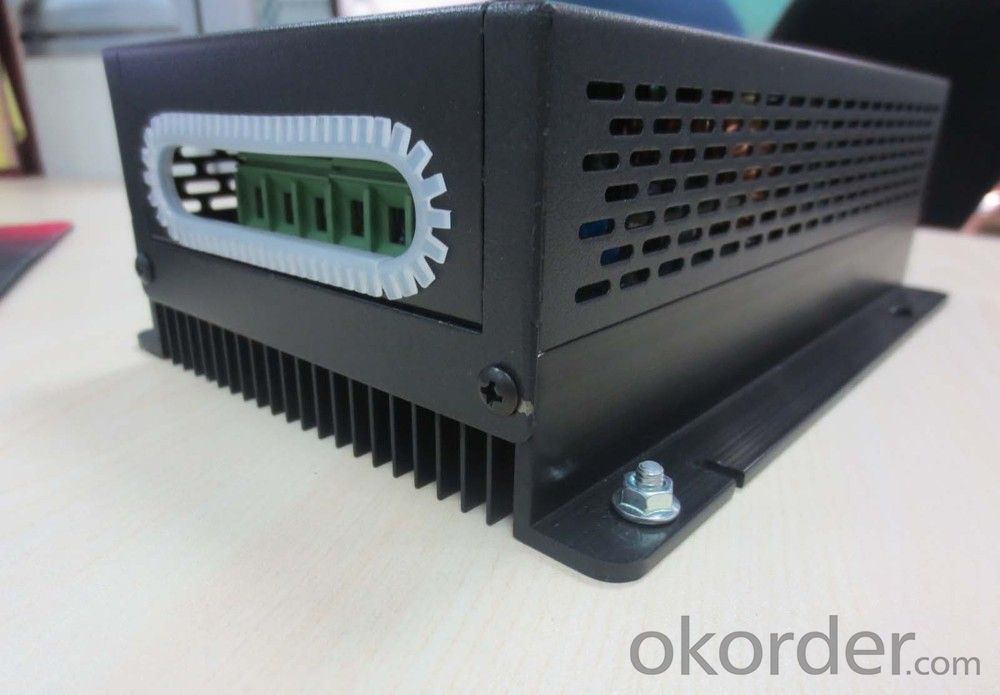
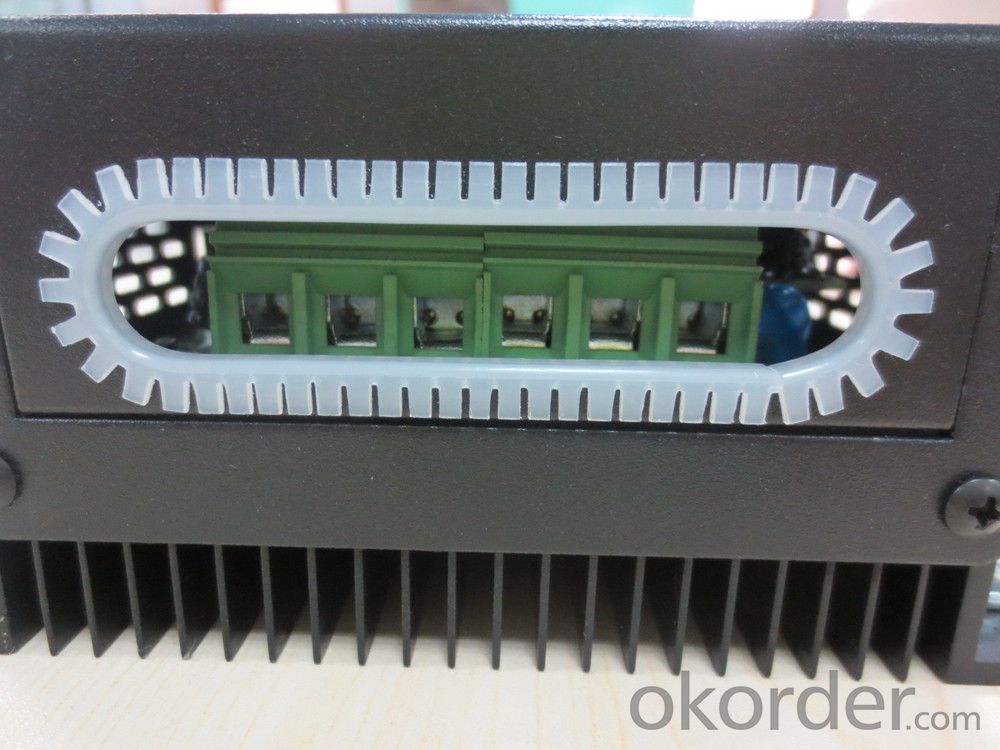
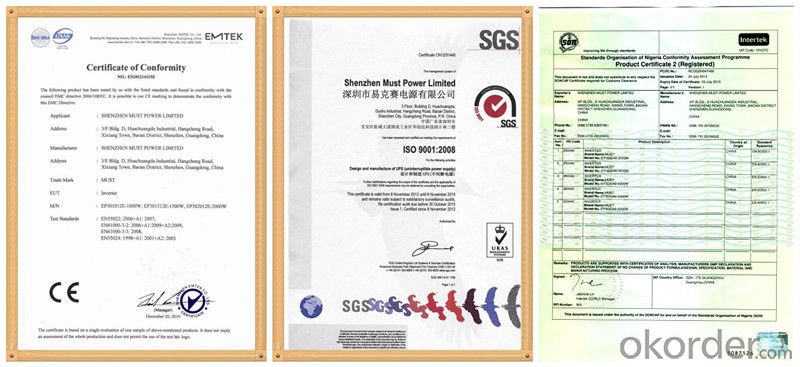
- Q: Can a solar controller be used with a solar-powered boat?
- Yes, a solar controller can be used with a solar-powered boat. A solar controller helps regulate the voltage and current from the solar panels, ensuring efficient charging of the boat's batteries. It also protects the batteries from overcharging or damage. Therefore, using a solar controller is essential for the proper functioning and maintenance of a solar-powered boat.
- Q: Can a solar controller be used in a solar-powered electric wheelchair charging system?
- Yes, a solar controller can be used in a solar-powered electric wheelchair charging system. A solar controller serves as a vital component in regulating and optimizing the charging process of solar panels. It helps manage the flow of electricity from the panels to the wheelchair's battery, ensuring safe and efficient charging.
- Q: Can a solar controller be used in a solar-powered telecommunications system?
- Yes, a solar controller can be used in a solar-powered telecommunications system. A solar controller, also known as a charge controller, is an essential component that regulates and controls the flow of electricity from the solar panels to the batteries. It ensures that the batteries are charged efficiently and protects them from overcharging or excessive discharging. In a solar-powered telecommunications system, the solar controller plays a crucial role in managing the energy generated by the solar panels, ensuring reliable power supply for the communication equipment.
- Q: How does a solar controller handle the protection against battery reverse polarity?
- A solar controller handles the protection against battery reverse polarity by incorporating a built-in diode or a solid-state switch. This device ensures that the current flows in the correct direction, preventing any damage to the battery caused by reverse polarity.
- Q: What is the difference between a PWM solar controller and an MPPT solar controller?
- A PWM (Pulse Width Modulation) solar controller and an MPPT (Maximum Power Point Tracking) solar controller are both used in solar power systems to regulate the charging of batteries. The main difference between the two is in their charging efficiency and performance. A PWM solar controller works by rapidly switching the solar panel's output on and off to maintain a steady voltage for charging the battery. However, this method can result in energy loss and lower charging efficiency, especially in situations where the solar panel voltage is much higher than the battery voltage. On the other hand, an MPPT solar controller is designed to optimize the power output of the solar panel by dynamically adjusting the voltage and current to find the maximum power point. This allows the MPPT controller to efficiently convert and deliver more power to the battery, resulting in higher charging efficiency and better utilization of available solar energy. In summary, an MPPT solar controller is generally more advanced and efficient than a PWM solar controller, making it a preferred choice for maximizing the charging efficiency and performance of solar power systems.
- Q: Can a solar controller be used with solar-powered indoor cooling systems?
- Yes, a solar controller can be used with solar-powered indoor cooling systems. A solar controller is a device that regulates the flow of electricity from the solar panels to the cooling system. It ensures that the solar panels are charging the batteries efficiently and prevents overcharging or discharging. Whether it is a solar-powered air conditioner, evaporative cooler, or any other cooling system, a solar controller helps optimize the utilization of solar energy and ensures the smooth operation of the system. By monitoring and controlling the power flow, a solar controller helps to increase the overall efficiency and reliability of solar-powered indoor cooling systems.
- Q: What are the advantages of using a PWM solar controller?
- There are several advantages of using a PWM (Pulse Width Modulation) solar controller. Firstly, PWM controllers are cost-effective and readily available in the market. They are simpler in design, making them less expensive compared to MPPT (Maximum Power Point Tracking) controllers. Secondly, PWM controllers are highly efficient in charging batteries. They can effectively regulate and control the charging process, preventing overcharging and extending the lifespan of the batteries. Additionally, PWM controllers are suitable for smaller solar power systems or applications where the solar panel voltage matches the battery voltage. They work well in situations where the solar panel array is not oversized or if the system operates at a high voltage. Furthermore, PWM controllers are easy to install and operate, making them a user-friendly option for individuals or businesses new to solar energy systems. They require minimal maintenance and typically have built-in protection features against overvoltage, overload, and short circuits. In summary, the advantages of using a PWM solar controller include cost-effectiveness, high charging efficiency, compatibility with smaller systems, ease of installation and operation, and built-in protection features.
- Q: Does a solar controller have a built-in display for monitoring?
- Yes, a solar controller typically has a built-in display for monitoring.
- Q: Can a solar controller be used with solar panels that are connected in parallel?
- Solar panels that are connected in parallel can indeed be used with a solar controller. In this configuration, the positive terminals of all the panels are connected together, as are the negative terminals. This setup allows for the combined voltage output of the panels while maintaining the same current output. The purpose of a solar controller is to regulate the charging process of batteries that are connected to the solar panels. It serves to prevent overcharging and damage to the batteries. To do so, the solar controller measures the voltage and current from the panels and adjusts the charging process accordingly. Regardless of whether the solar panels are connected in series or parallel, the solar controller can effectively monitor and regulate the charging process. It will measure the combined voltage and current from the parallel-connected panels and adjust the charging parameters accordingly. However, when connecting solar panels in parallel, it is crucial to ensure that the solar controller and the wiring used can handle the increased current. The total current output of the parallel-connected panels will be the sum of the individual panel currents, so the wiring and solar controller must be capable of handling this increased load. To conclude, solar panels connected in parallel can be used with a solar controller. The solar controller will continue to effectively regulate the charging process while ensuring optimal battery performance and longevity.
- Q: How does a solar controller prevent short circuits in the solar panel array?
- A solar controller prevents short circuits in a solar panel array by monitoring and regulating the flow of electricity from the panels to the battery or grid. It acts as a middleman between the panels and the battery, ensuring that the voltage and current levels are controlled and optimized for safe and efficient operation. Short circuits occur when there is an unintended connection or path between the positive and negative terminals of a solar panel. This can happen due to various reasons such as damaged wiring, faulty connections, or extreme weather conditions. When a short circuit occurs, it can lead to excessive current flow, overheating, and potentially damage the panels or other components of the system. To prevent short circuits, a solar controller employs different mechanisms. One of the key features is the use of bypass diodes, which are integrated into the solar panels. Bypass diodes help to divert the current flow around any shaded or malfunctioning cells, preventing them from becoming a source of short circuits. By rerouting the current, the solar controller ensures that the overall performance of the array is not significantly affected. Additionally, solar controllers also include overcurrent protection mechanisms, such as fuses or circuit breakers. These devices are designed to interrupt the flow of electricity in case of an excessive current, thereby preventing short circuits. They act as safeguards, limiting the maximum current that can be drawn from the solar panels, and protecting the system from damage. Furthermore, solar controllers continuously monitor the voltage and current levels of the solar panels. They regulate the charging process by maintaining the voltage within a safe range to prevent overcharging, which can cause damage to the panels or the battery. The controller adjusts the charging parameters based on the battery's state of charge, ensuring that the panels are not overloaded and reducing the risk of short circuits. Overall, a solar controller plays a crucial role in preventing short circuits in a solar panel array by incorporating bypass diodes, overcurrent protection mechanisms, and voltage regulation. It ensures that the panels operate safely, efficiently, and maximizes the lifespan of the system.
Send your message to us
Solar Controllers from Thailand Supplier - MPPT Solar Charge Controller 12V 24V 20A
- Loading Port:
- Shekou
- Payment Terms:
- TT or LC
- Min Order Qty:
- 100 pc
- Supply Capability:
- 100000 pc/month
OKorder Service Pledge
OKorder Financial Service
Similar products
Hot products
Hot Searches
Related keywords
